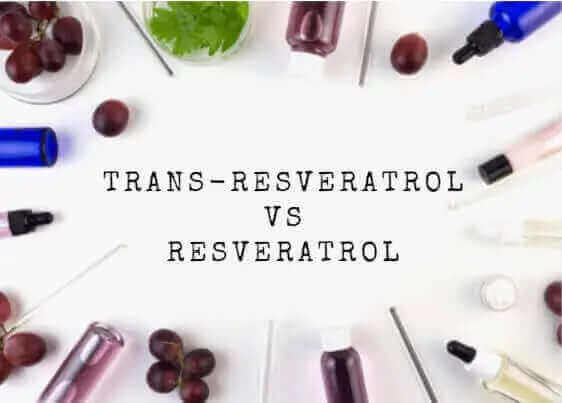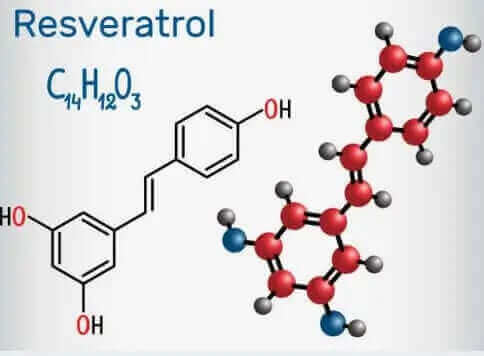Life-Extension Supplements: Your Complete Guide to Science-Backed Longevity Solutions
Imagine adding years of vitality to your life through the power of science-backed Life-Extension supplements. This comprehensive guide reveals the breakthrough research, proven ingredients, and practical strategies that could transform your approach to healthy aging. Whether you're 30 or 70, the insights here offer hope and actionable steps toward a longer, more vibrant life.
Understanding Life-Extension Supplements and Their Revolutionary Impact
The quest for longevity has captivated humanity for centuries, but only recently have Life-Extension supplements emerged as scientifically validated tools for extending healthspan. These powerful compounds work at the cellular level, targeting the fundamental mechanisms of aging that affect every system in your body.
Think of your cells as tiny factories that gradually slow down production over time. Life-Extension supplements act like efficiency consultants, optimizing operations and maintaining peak performance even as the years pass. The most exciting part? Research shows these supplements don't just add years to your life—they add life to your years.
The Science Behind Telomeres and Life-Extension Supplements
At the heart of cellular aging lies a fascinating structure called telomeres. Picture them as protective caps on your chromosomes, similar to the plastic tips on shoelaces that prevent fraying. Every time your cells divide, these telomeres shorten slightly. When they become too short, cells can no longer divide properly, leading to aging and age-related diseases.
Here's where Life-Extension supplements shine. Recent groundbreaking research published in the American Journal of Clinical Nutrition revealed that people taking daily multivitamins had telomeres that were 5.1% longer than non-users. This difference represents approximately five years of biological aging—imagine feeling five years younger at the cellular level!
How Life-Extension Supplements Protect Your Telomeres
- Combat oxidative stress: Free radicals constantly attack your telomeres, but antioxidant-rich supplements create a protective shield
- Reduce inflammation: Chronic inflammation accelerates telomere shortening; specific supplements help maintain healthy inflammatory responses
- Support DNA repair: Certain nutrients enhance your body's natural ability to fix damaged genetic material
- Boost cellular energy: Mitochondrial support helps cells maintain youthful function despite chronological aging
Top Life-Extension Supplements That Transform Your Health
Not all supplements are created equal when it comes to extending lifespan and healthspan. The following Life-Extension supplements have earned their place at the top through rigorous scientific validation and real-world results.
1. Curcumin: The Golden Key to Longevity
Curcumin, the vibrant compound in turmeric, stands as one of the most potent Life-Extension supplements available. This remarkable molecule activates longevity proteins called sirtuins while simultaneously protecting cells from damage. Studies show curcumin users experience improved cognitive function, reduced joint discomfort, and enhanced overall vitality.
Sarah, a 58-year-old teacher, shares her experience: "After six months of curcumin supplementation, I noticed my morning stiffness disappeared, and my mental clarity improved dramatically. It feels like I've turned back the clock by a decade."
2. Nicotinamide Mononucleotide (NMN): The NAD+ Booster
NMN represents a breakthrough in Life-Extension supplements by directly increasing NAD+ levels in your cells. NAD+ acts as cellular fuel, powering hundreds of vital processes. As we age, NAD+ levels plummet by up to 50%, but NMN supplementation can restore youthful levels.
The benefits of optimal NAD+ levels include:
- Enhanced energy production and reduced fatigue
- Improved DNA repair mechanisms
- Better metabolic function and weight management
- Sharper cognitive performance and memory
- Stronger cardiovascular health
3. Resveratrol: Nature's Age-Defying Compound
Resveratrol, found in red grapes and berries, activates the same longevity pathways triggered by caloric restriction—without the hunger! This powerful polyphenol has been shown to extend lifespan in multiple organisms and offers profound benefits for human health.
4. Collagen: Your Skin's Time Machine
While many Life-Extension supplements work internally, collagen provides visible anti-aging benefits. As the most abundant protein in your body, collagen maintains skin elasticity, joint flexibility, and bone strength. Supplementation can increase skin collagen density by up to 12% in just 12 weeks.
5. CoQ10: The Cellular Energizer
Coenzyme Q10 (CoQ10) fuels your mitochondria—the powerhouses of your cells. This essential antioxidant naturally declines with age, but supplementation can restore youthful energy production. Studies show CoQ10 users experience improved exercise performance, better heart health, and enhanced quality of life.
6. EGCG: Green Tea's Longevity Secret
Epigallocatechin gallate (EGCG) from green tea offers remarkable Life-Extension benefits. Population studies reveal that regular green tea drinkers have significantly lower mortality rates from all causes. EGCG improves mitochondrial function and provides powerful antioxidant protection.
7. Vitamin C: The Foundational Protector
Often overlooked, vitamin C remains crucial for healthy aging. Low levels accelerate aging and increase disease risk. Adequate supplementation supports collagen production, immune function, and cellular protection against oxidative stress.
8. Crocin: Saffron's Hidden Treasure
This vibrant pigment from saffron fights cellular damage and reduces inflammaging—the chronic, low-grade inflammation that accelerates aging. Research shows crocin supplementation can improve cognitive function and extend healthspan.
Creating Your Personalized Life-Extension Supplement Protocol
Success with Life-Extension supplements requires a thoughtful, personalized approach. Here's how to create your optimal protocol:
Step 1: Assess Your Current Health Status
Begin with comprehensive blood work to identify deficiencies and establish baselines. Key markers include vitamin D, B12, inflammatory markers, and oxidative stress indicators.
Step 2: Start with Foundation Supplements
Build your protocol on a solid foundation:
- High-quality multivitamin (ensuring adequate vitamins C, E, B12, and D)
- Omega-3 fatty acids for cardiovascular and brain health
- Vitamin D3 if levels are suboptimal
- Magnesium for cellular function
Step 3: Add Targeted Life-Extension Supplements
Based on your goals and health status, incorporate specific longevity compounds:
- For cellular energy: NMN or CoQ10
- For inflammation control: Curcumin or crocin
- For longevity pathways: Resveratrol or EGCG
- For visible aging: Collagen peptides
Step 4: Monitor and Adjust
Track your progress through regular testing and subjective improvements. Adjust dosages and combinations based on results and how you feel.
Maximizing the Benefits of Life-Extension Supplements
While supplements provide powerful support, they work best within a comprehensive longevity lifestyle. Here's how to amplify their effects:
Nutrition Strategies for Optimal Absorption
- Take fat-soluble supplements (curcumin, CoQ10, vitamin D) with meals containing healthy fats
- Space iron and calcium supplements apart from other minerals
- Consider taking probiotics to enhance nutrient absorption
- Stay hydrated to support cellular uptake of water-soluble vitamins
Lifestyle Factors That Enhance Supplement Effectiveness
- Regular exercise: Movement increases circulation, delivering nutrients throughout your body
- Quality sleep: Cellular repair and regeneration occur primarily during deep sleep
- Stress management: Chronic stress depletes nutrients and accelerates aging
- Intermittent fasting: Enhances the longevity pathways activated by supplements
- Social connections: Strong relationships support overall health and supplement adherence
Success Stories: Real People, Real Results
The transformative power of Life-Extension supplements becomes clear through the experiences of those who've embraced them:
Mark, 65, Entrepreneur: "After starting a comprehensive supplement protocol including NMN and resveratrol, my energy levels skyrocketed. I'm running my business with the vigor I had in my 40s, and my recent health screening showed markers of someone 15 years younger."
Linda, 52, Yoga Instructor: "Collagen and curcumin have been game-changers. My joint flexibility improved dramatically, and students constantly ask about my 'secret' to looking so youthful. The confidence boost alone has been worth it."
Robert, 71, Retired Professor: "I was skeptical about Life-Extension supplements until I tried them. The combination of CoQ10 and EGCG has given me mental clarity I haven't experienced in years. I'm writing my third book and feel sharper than ever."
Understanding the Investment in Your Future
Quality Life-Extension supplements represent an investment in your future self. While costs vary, consider this perspective: the average person spends more on coffee each month than on supplements that could add years of vitality to their life. When you factor in potential healthcare savings and improved quality of life, the return on investment becomes clear.
Budget-Friendly Strategies
- Start with foundational supplements and add others gradually
- Look for combination formulas that provide multiple benefits
- Buy in bulk during sales to reduce per-dose costs
- Focus on supplements with the strongest scientific support first
- Consider powder forms, which often cost less than capsules
Safety Considerations and Best Practices
While Life-Extension supplements offer tremendous benefits, responsible use ensures optimal results:
Important Safety Guidelines
- Consult healthcare providers: Especially if taking medications or managing health conditions
- Start slowly: Introduce one supplement at a time to monitor effects
- Choose quality brands: Look for third-party testing and GMP certification
- Follow dosage recommendations: More isn't always better with supplements
- Be patient: Many benefits develop over weeks or months
The Future of Life-Extension Supplements
Exciting developments on the horizon promise even more powerful longevity tools:
- Personalized supplementation: Genetic testing will guide individual protocols
- Novel delivery systems: Enhanced absorption through nanotechnology
- Combination therapies: Synergistic formulas targeting multiple aging pathways
- Biomarker tracking: Real-time monitoring of supplement effectiveness
- New discoveries: Ongoing research continues identifying powerful longevity compounds
Taking Action: Your Journey to Extended Vitality
The science is clear: Life-Extension supplements offer a practical, accessible path to healthier aging. By targeting the root causes of cellular decline, these powerful compounds help you maintain youthful function regardless of your chronological age.
Your journey begins with a single step. Whether you start with a comprehensive multivitamin or dive into advanced compounds like NMN and resveratrol, each positive choice compounds over time. The key is consistency and patience—cellular regeneration doesn't happen overnight, but the results are worth the wait.
Remember, you're not just adding years to your life; you're adding life to your years. The vitality, clarity, and energy that Life-Extension supplements provide enable you to pursue your passions, connect with loved ones, and experience the joy of optimal health at any age.
Frequently Asked Questions About Life-Extension Supplements
What are the most effective Life-Extension supplements for beginners?
For those new to Life-Extension supplements, start with a foundation of a high-quality multivitamin containing vitamins C, E, B12, and D. Add omega-3 fatty acids for heart and brain health, then consider incorporating either curcumin for inflammation control or CoQ10 for cellular energy. These foundational supplements provide broad-spectrum benefits while being gentle enough for beginners. As you become comfortable, you can explore more targeted options like NMN or resveratrol based on your specific health goals.
How long does it take to see results from Life-Extension supplements?
The timeline for experiencing benefits from Life-Extension supplements varies by compound and individual factors. Energy-boosting supplements like CoQ10 or NMN often show effects within 2-4 weeks. Collagen typically requires 8-12 weeks for visible skin improvements. Telomere-supporting nutrients may take 3-6 months to show measurable changes. Most people report feeling generally better within the first month, with more dramatic improvements accumulating over time. Consistency is key—think of it as a marathon, not a sprint, toward optimal health.
Can Life-Extension supplements reverse existing age-related damage?
While Life-Extension supplements cannot turn back time completely, research shows they can reverse certain aspects of cellular aging. For example, NMN supplementation can restore NAD+ levels to more youthful states, improving energy production and DNA repair. Collagen can increase skin thickness and elasticity, reducing visible signs of aging. Antioxidants like curcumin help clear accumulated cellular damage. Think of these supplements as renovation tools for your body—they can repair, restore, and optimize function, leading to measurable improvements in biological age markers.
Are Life-Extension supplements safe for long-term use?
Most Life-Extension supplements have excellent safety profiles for long-term use when taken as directed. Nutrients like vitamins C, E, and B12 have been safely used for decades. Newer compounds like NMN and resveratrol have shown no significant adverse effects in clinical studies. However, quality matters—choose reputable brands with third-party testing. Always consult healthcare providers before starting any supplement regimen, especially if you have existing health conditions or take medications. Regular monitoring through blood work can ensure optimal levels without excess.
How do I know which Life-Extension supplements are right for me?
Selecting the right Life-Extension supplements starts with understanding your unique health profile and goals. Begin with comprehensive blood work to identify deficiencies and health markers. Consider your family history—if heart disease runs in your family, prioritize cardiovascular support like CoQ10 and omega-3s. For cognitive concerns, focus on supplements like curcumin and EGCG. Age also matters: those over 50 often benefit most from NMN for NAD+ support, while younger individuals might focus on preventive antioxidants. Working with a knowledgeable healthcare provider can help create a personalized protocol that addresses your specific needs.
What lifestyle changes enhance the effectiveness of Life-Extension supplements?
Life-Extension supplements work synergistically with healthy lifestyle choices. Regular exercise increases circulation and nutrient delivery while activating longevity genes. A Mediterranean-style diet rich in vegetables, healthy fats, and lean proteins provides cofactors that enhance supplement absorption. Quality sleep (7-9 hours) allows cellular repair processes to function optimally. Stress reduction through meditation or yoga prevents nutrient depletion. Intermittent fasting can amplify the longevity pathways activated by supplements like resveratrol. Social connections and purposeful activities also contribute to overall wellbeing, creating an environment where supplements can deliver maximum benefits.
How much should I budget for a comprehensive Life-Extension supplement routine?
A basic Life-Extension supplement routine typically costs $50-100 monthly for foundational nutrients like multivitamins, omega-3s, and vitamin D. A more comprehensive protocol including specialized compounds like NMN, curcumin, and resveratrol might range from $150-300 monthly. While this may seem significant, consider it an investment in preventing future health issues and maintaining vitality. Many people find they save money on healthcare costs and sick days. Start with essentials and gradually add supplements as your budget allows. Buying in bulk, choosing powder forms, and watching for sales can reduce costs by 20-30%.
Can Life-Extension supplements interact with prescription medications?
Yes, some Life-Extension supplements can interact with prescription medications, making professional guidance essential. For example, curcumin can enhance the effects of blood thinners, while high-dose vitamin E may interfere with certain medications. CoQ10 might reduce the effectiveness of some blood pressure medications. Resveratrol can interact with blood thinners and NSAIDs. Always inform your healthcare provider about all supplements you're taking. They can help you navigate potential interactions and may adjust medication dosages accordingly. Many interactions can be managed through proper timing and dosage adjustments, allowing you to benefit from both medications and supplements safely.
What scientific evidence supports the use of Life-Extension supplements?
The scientific foundation for Life-Extension supplements grows stronger each year. Thousands of peer-reviewed studies support their benefits. For instance, research in the American Journal of Clinical Nutrition showed multivitamin users had 5.1% longer telomeres. NMN studies demonstrate restored NAD+ levels and improved metabolic function. Curcumin has over 12,000 published studies showing anti-inflammatory and neuroprotective effects. Resveratrol research reveals activation of longevity genes and extended lifespan in multiple species. Major institutions like Harvard, MIT, and the National Institutes of Health continue investigating these compounds. The convergence of laboratory research, clinical trials, and real-world outcomes provides compelling evidence for their effectiveness.
At what age should someone start taking Life-Extension supplements?
While aging begins at the cellular level in our twenties, the optimal time to start Life-Extension supplements varies by individual. Most experts recommend beginning with foundational nutrients like multivitamins and omega-3s in your 30s when cellular metabolism starts slowing. More targeted supplements like CoQ10 become beneficial around age 40 when natural production declines. Advanced longevity compounds like NMN and resveratrol can be started in your 40s or 50s for maximum impact. However, younger individuals with family histories of age-related diseases or high-stress lifestyles may benefit from starting earlier. The key is prevention—starting before significant decline occurs yields the best results.
Conclusion: Your Path to Extraordinary Longevity
Life-Extension supplements represent a remarkable convergence of ancient wisdom and cutting-edge science. From telomere protection to cellular energy optimization, these powerful compounds offer practical solutions for anyone seeking to maximize their healthspan. The journey toward extraordinary longevity begins with understanding these tools and implementing them wisely.
As you embark on this transformative path, remember that every positive choice builds upon the last. Whether you're taking your first multivitamin or fine-tuning an advanced protocol, you're investing in a future filled with vitality, purpose, and joy. The science supports it, success stories confirm it, and your future self will thank you for starting today.
The fountain of youth may be a myth, but Life-Extension supplements offer something better: a scientifically validated approach to aging gracefully while maintaining the energy and enthusiasm that make life worth living. Your extraordinary future awaits—take the first step today.







